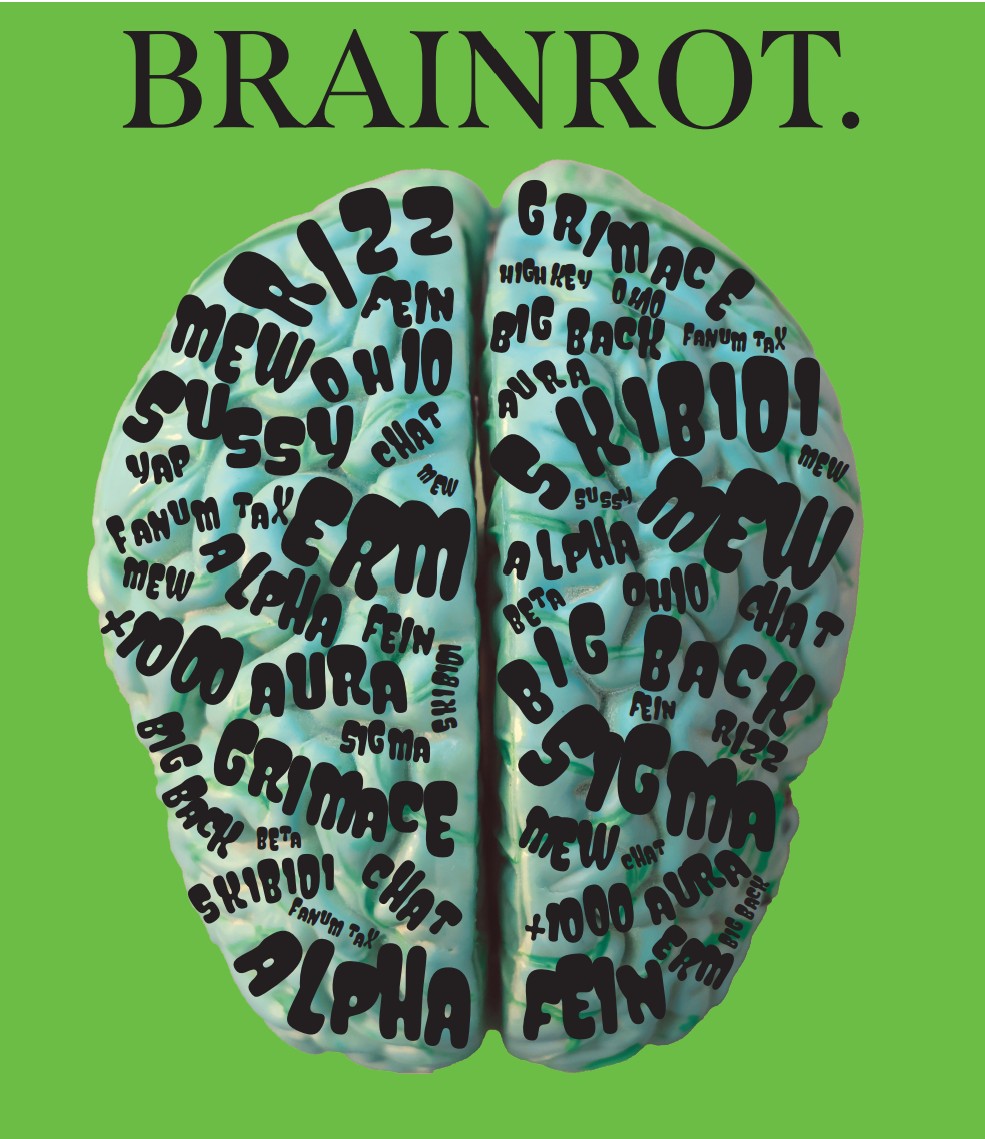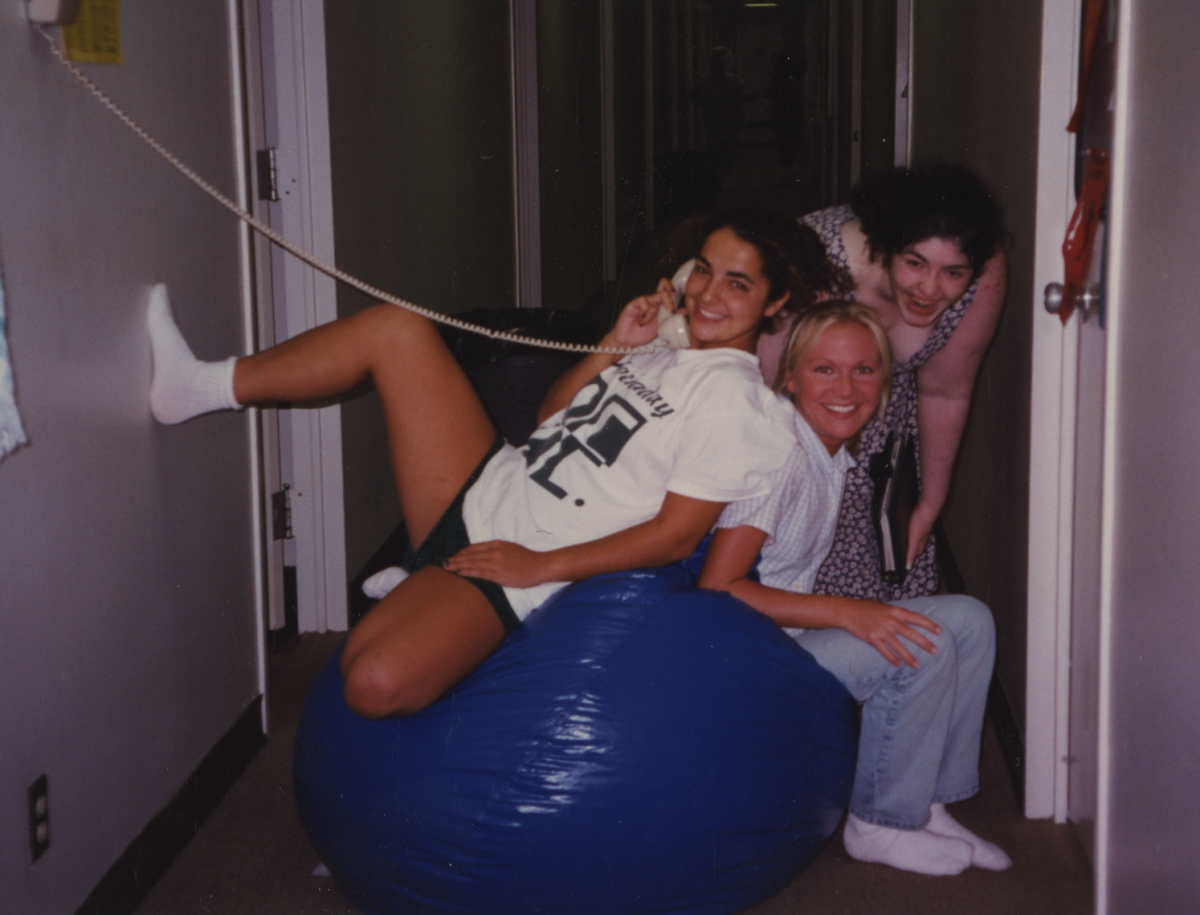You studied, but you still don’t know all the dates—so you write them on your saddle oxford.  As you glance at the sole of your shoe, your teacher catches you and turns you in. Next thing you know, you’re meeting with Dean Matthews, who will explain why you are being called to Honor Council and what evidence has been presented.
As you glance at the sole of your shoe, your teacher catches you and turns you in. Next thing you know, you’re meeting with Dean Matthews, who will explain why you are being called to Honor Council and what evidence has been presented.
On the date of the trial with the Honor Council, you will meet your advisor and teacher outside the meeting room on the second floor of the ARC. The Honor Council members, as well as two teacher sponsors, will sit inside the meeting room. To begin the trial, Dean Matthews will escort the teacher inside to tell his or her side of the story, and the council will ask questions based on what they hear. Once their story has been relayed, the teacher will be escorted out.
I pledge to do justice to my community, to my peers, and to myself. I pledge to respect the trust invested in me as a Hockaday student acknowledging that my conduct in school will lay the foundation for a life-long commitment to integrity. When I turn in any assignment or assessment, I am claiming the work as my own whether the honor code is explicitly or implicitly expressed. As a student, I am obligated to consult a teacher if I am confused about my limitations for a particular assignment before submitting it. I understand that deceiving, plagiarizing, or cheating in any other form undermines my strength of character. If at anytime I realize I have violated the honor code, I pledge to right the wrong I have committed.
supplement to the Honor Code, added 2010Dean Matthews will then bring you and your advisor into the room, and the process will begin again. After you have told your side of the story, your advisor will speak about your character. At this point, you and your advisor are free to go, and the council will remain in the room to deliberate.
In the great majority of cases brought to Honor Council, the student in question has already admitted to the act, so it is up to the Honor Council to decide the punishment. They will base their decision on precedents relevant to the case, as well as the student’s previous offenses. This entire process generally takes about twenty minutes. Once a punishment has been decided upon, the council will make their recommendation to the disciplinary committee, who will relay it to the student within twenty-four hours.
Hockaday prides itself on its honor system—girls are trusted by their teachers, and members of the Hockaday community are expected to conduct themselves in an honest manner and follow the Honor Code. Yet how many Hockaday students actually understand or even know the Code?
According to a recent anonymous survey of Upper School students, only 41 percent could accurately recite it, and there was a vast array of answers to the question “What does the Honor Code mean to you?”, ranging from “do not be a liar” to “not much since the teachers already trust us.”
The Upper School Handbook says that the Council seeks to integrate the Honor Code into “all aspects of the community.” As each student pledges to uphold the Honor Code, they “affirm their commitment to a community in which members are assumed to be truthful and honorable in their actions.”
The Honor Code itself—“I pledge that I have neither given nor received any aid during this examination”—is simple enough, yet the problem is often that it is overly simple. What constitutes “aid?” Why does the pledge only apply to what happens during the examination—what about before or after the exam?
One survey respondent said that the code “instills a sense of fear in every student because they know that their actions will have consequences…I see it as one violation destroying my entire future.” Another added that she sees the Honor System as a “a pact of honesty to keep the students honest without the teachers having to hyper-manage each assignment he/she gives.”
Dean of Students Meshea Matthews has worked with new Head of Upper School John Ashton and this year’s Honor Council under senior Arden to help combat Honor Code violations and provide more information to students. To clear up some of the vague areas, the Council recently completed a supplement that is intended to address the Honor Code on a more personal level. It emphasizes trust, justice, and obligation, and ends with the slogan of this year’s Council: When in Doubt, Talk it Out.
With an updated Honor Code and a Council that is willing to make changes, the Honor System has seen a revival this school year and put more of an emphasis on what Arden describes its purpose is: to “do more than just uphold the Honor Code, but makes the process a lot simpler and more comfortable.” As she concludes, “It’s good to see students involved in it just so it seems more of a student issue.”
According to Honor Council President Arden, cheating is “using unauthorized sources or claiming someone else’s work as your own.” Dean of Students Meshea Matthews agrees, stating that cheating “can be a variety of things, but it begins with an unauthentic response, something that’s not your own.”
But why do students cheat? According to Professor of Educational Psychology Dr. Jason M. Stephens, “teens rarely think cheating is acceptable—but they do think it’s understandable. Things like getting into a good college or helping out a friend often offset the wrongness of cheating [in their minds.]”
Donald McCabe, a Rutgers professor who conducted a nationwide survey on high school cheating, says, “I think kids today are looking to adults and society for a moral compass, and when they see the behavior occurring there, they don’t understand why they should be held to a higher standard.”
From his survey of 4,500 students, 75 percent admitted to considerable cheating. Half of the students that admitted to cheating revealed that they did not consider copying questions or answer on a test cheating.
“I think a lot of the cheating occurs under stress,” says Upper School math teacher Jackie Girard, “students making wrong decisions at stressful points in their lives.” An anonymous Upper Schooler adds, “I have cheated when I’m freaking out during a test and blanking on an answer. At those points I have glanced over at other people’s papers to compare their answers to my own.”
Matthews agrees, “I think everyone faces temptation on a daily basis and we all struggle with that.”
Students feel this temptation because it can sometimes appear as though cheaters reap more benefits than those who follow the rules. “As a culture, we tend to reward cutting corners and getting ahead,” says Anastasia Goodstein, author of Totally Wired: What Teens and Tweens are Really doing Online.
According to L.A.-based adolescent therapist Mike Dow, cheating is a cycle. “[It] becomes a learned response in the brain’s pathways.” If a student does not get caught, she is more likely to cheat again because cheating seems like the easy way out. Furthermore, she does not develop the skills and knowledge to succeed in her classes without using cheating as a crutch. If a girl does not take the time to study for quizzes, she will find it very difficult to succeed on the exam.
Cheating is a cycle and it continues through college. In fact, according to McCabe’s survey, many college students admitted to cheating in high school. From college students surveyed each year, between 75 and 98 percent of college students admitted to having cheated in high school. Some college campuses are similar to Hockaday in that have honor codes and pledges, but many others do not.
McCabe’s report concludes, “Dishonest behavior in the workplace was lowest for participants who had experienced an honor code environment in college and who currently worked in an organization that had a strongly implemented code of ethics.” It continued, “Overall, this work suggests that participation in multiple honor code communities can play a part in reducing dishonest behavior, particularly if the honor codes are well implemented and strongly embedded in the organizational culture.”
While certain violations of the honor code, such as copying answers on a test or plagiarizing someone else’s words in an essay, are obvious, other violations are not as clear. Using SparkNotes, for example, is considered cheating by some teachers, but is accepted by others.
When you look at something like SparkNotes, says Matthews, “you read someone else’s work or thoughts, or incorporate their ideas into your own. Suddenly, the other person’s ideas have meshed with your own and that is no longer your authentic response.”
“Talk to your teacher because I think the answers will vary,” says Youngblood. “I think that, even if you do the assignment, you probably should just avoid looking up [summaries or analyses] unless your teacher says it is okay because [personal analysis] is part of class discussion.”
Students calling in sick on test days is also a tricky situation. If “the parents call in,” says Girard, “we have to honor that they’ve called in the student sick.”
Regardless, Arden asserts that calling in sick on a test day is cheating. “It puts you at an unfair advantage compared to other students—you get more time to study, whereas everyone else took it on the specified date.”
Teachers and students at Hockaday hope that with an honor code, students will hold themselves to a higher standard and that cheating will occur less than at other schools. As Matthews says, “our goal, as an honor code community, to do a better job of supporting each other.”








